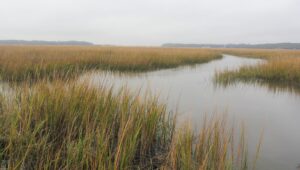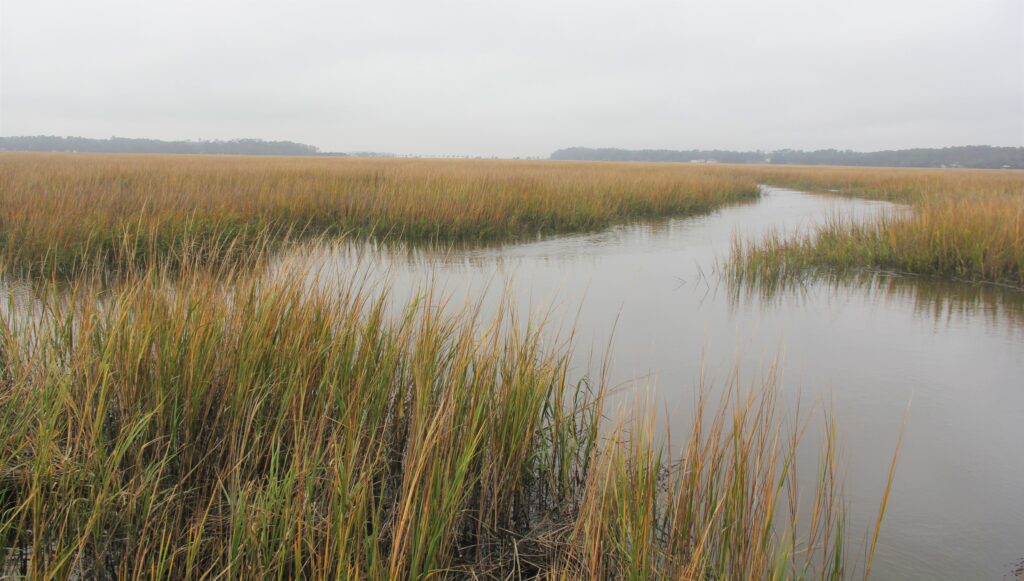By Caroline Willcox
The cost of housing has risen to such an extent in the past few years that, for some, it has become prohibitive to home ownership or housing generally.[1] This problem is especially prevalent in Idaho, where houses in Boise are almost 70 percent overvalued.[2] A woman in Idaho, Chasidy Decker, found a solution to this problem that worked for her. She bought a “tiny home” constructed from high-quality materials and up to the safety standards of a traditional home.[3] She wanted a tiny home because “they were attractive, affordable, reliable, mobile, and stable. With a tiny home on wheels, I believed I would always have a roof over my head.”[4] Chasidy found a place to park her tiny home in Meridian, Idaho, on Robert Calacal’s property.[5] Calacal purchased his property specifically in part because of its RV hookups that he could rent to people like Chasidy, who would need a place for their tiny home or RV.[6] The previous owners of his property and other neighbors utilize their property in this way.[7] Chasidy and Robert signed a one year lease in which they agreed that Chasidy would pay $600 plus $100 in utilities to Robert in exchange for her to be able to live on his property.[8]
Unfortunately, the city of Meridian prevented this mutually beneficial agreement that allowed for a home for Casidy and rental income for Robert. While the city code allows Chasidy to have her tiny home parked on the property indefinitely, the regulation prohibits living in “mobile tiny houses” or RVs “except within a recreational vehicle park.”[9] However, there are currently extensive waitlists for the local RV parks for tiny homeowners like Chasidy, and even then, some do not allow tiny homes to use their property.[10] The City ordered Chasidy to move from Robert’s property within ten days or face criminal prosecution and fines up to $1,000 per day.[11] Chasidy ultimately complied with the order, leaving her homeless, despite owning a perfectly safe home.[12]
In addition to the fact that the city selectively and arbitrarily enforced the ordinance against Chasidy and Robert,[13] the ordinance violates the Idaho constitution and the parties’ property rights. The Idaho constitution requires “laws infringing on property rights to have a direct, real, and substantial relation to legitimate government interest.”[14] The attorneys representing her argue that this specific ordinance fails that requirement.[15] They argue that the ordinance does not promote health or safety because the city allows people to live in the same structures but only if they are parked in specified areas.[16] The home itself is not regulated; instead, the only issue the ordinance regulates is where homes and RVs are parked.[17] The ordinance also does not advance any aesthetic goals for the city because owners can keep any RV or tiny home parked on private property so long as no one is using them for the purpose of providing housing.[18] While zoning laws and land use regulations can play an important part in ensuring the safety of a town’s citizens, they must actually serve a legitimate public end. When they do not, they violate the rights of their citizens. Casidy has filed a complaint for declaratory and injunctive relief in an attempt to have her property rights restored and the use of her home permitted.
Unfortunately, other cities and municipalities are creating barriers to lower-cost and nontraditional housing. A nonprofit in Calhoun, Georgia, sought to build small, environmentally friendly cottage-style homes between 450 and 600 square feet for people who wanted to be homeowners but were unable because of the cost of traditionally sized homes.[19] Though the plans for the cottages were in accordance with all zoning and safety codes, the city bans any homes that are smaller than 1,150 square feet.[20] This ban does not have any rational relationship to a legitimate government interest but, as the nonprofit’s attorneys, argue only serves to artificially inflate already-high housing costs.[21] Similarly, in Big Water, Utah’s zoning ordinance prohibits homes smaller than 2,000 square feet in a particular residential zone.[22] The city even admitted in a letter that the purpose of the ordinance was to “keep the property value up.”[23] Like the situation that Casidy faces, residents in Sierra Vista, Arizona, were forced to move their RVs because the city code deemed it illegal for them to live in them in one lot, though they were allowed to park there.[24] These ordinances and statutes, like Meridian’s, do not have a rational relation to a legitimate public end like public welfare or safety. Because of this, the regulations likely violate their state constitutions and the United States Constitution.
The size of someone’s home or its ability to transport its inhabitants should not hinder people from living as they choose or as their budget allows. This is especially true as remote work becomes more popular and people use their flexible work schedules to fit a more adventurous lifestyle. And as a matter of public policy, the government should not interfere with efforts to reduce homelessness through regulations that do not promote public health or improve safety. Rather, as housing prices continue to rise, states and municipalities should allow people to utilize any form of housing they desire or can afford instead of creating unnecessary barriers to housing.
[1] Zachary B. Wolf & Anna Bahney, The Housing Mess, Explained, CNN Politics (Sept. 17, 2022, 8:08 AM), https://www.cnn.com/2022/09/17/politics/housing-market-questions-what-matters/index.html.
[2] Complaint for Declaratory and Injunctive Relief and for Nominal Damages at 7, Decker v. City of Meridian, Idaho et. al., No. CV01-22-11962 (4th Dist. of Idaho 2022).
[3] Memorandum of Law in Support of Plaintiff’s Motion for Preliminary Injunction at 11, Decker v. City of Meridian, Idaho et. al., No. CV01-22-11962 (4th Dist. Idaho 2022).
[4] Declaration of Chasidy Decker in Support of Motion for Preliminary Injunction at 2, Decker v. City of Meridian, Idaho et. al., No. CV01-22-11962 (4th Dist. Idaho 2022).
[5] Complaint for Declaratory and Injunctive Relief and for Nominal Damages, supra note 2, at 2.
[6] Id.
[7] Memorandum of Law in Support of Plaintiff’s Motion for Preliminary Injunction, supra note 3, at 2.
[8] Complaint for Declaratory and Injunctive Relief and for Nominal Damages, supra note 2, at 9.
[9] Meridian City Code § 11-3A-20.
[10] Complaint for Declaratory and Injunctive Relief and for Nominal Damages, supra note 2, at 3.
[11] Id. at 2.
[12] Memorandum of Law in Support of Plaintiff’s Motion for Preliminary Injunction, supra note 3, at 4.
[13] Complaint for Declaratory and Injunctive Relief and for Nominal Damages, supra note 2, at 4.
[14] Id. at 19.
[15] Id. at 20.
[16] Id.
[17] Id.
[18] Id.
[19] Complaint for Declaratory Judgment, Injunctive Relief, and Attorney’s Fees and Petition for Writ of Certiorari at 2, Tiny House Hands Up, Inc. v. City of Calhoun, Georgia et al. (Super. Ct. Gordon Cnty., Ga. 2021).
[20] Id.
[21] Id. at 3.
[22] Letter via email from Joseph Gay and Bob Belden, Attorneys, Institute for Justice, to David Schmuker, Mayor, Big Water, Utah, Members of the Town Council, and Members of the Planning and Zoning Board at 1 (May 13, 2022) (on file with author).
[23] Id.
[24] Complaint at 17, Root v. City of Sierra Vista, Ariz., No. __ (Super. Ct. Ariz., Chochise Cnty. 2021).








